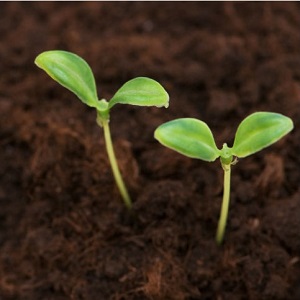 The thought manifests as the word;
The thought manifests as the word;
The word manifests as the deed;
The deed develops into habit;
The habit hardens into character.
So watch the thought and its ways with care,
And let it spring from love
Born out of concern for all beings. -The Buddha
In the garden of our minds, weeds are the habitual patterns we perpetuate unintentionally, which choke out the new ways we are trying to cultivate. It is the nature of weeds to try to take over, as it is the nature of old ingrained patterns to rise up again and again. So we need to pay attention, and take care of the weedy stuff as soon as we can, to make space for the new.
Sometimes the space created by taking out weeds can feel scary. That’s okay, it is a good time to kick back and take a few deep breaths and a stroll around the garden to see what else is happening. What are those glorious bright flowers doing over there? Oh, those are bulbs you planted last fall, with faith and confidence (okay, maybe not so much confidence, but you did plant them). Now they are doing their thing. They are springing forth because when you planted them you ensured successful conditions, as best you could—considering timing, placement, and nourishment. Then you trusted the nature of the work you did and the nature of what you set in the ground, and voila—now you have daffodils.
Sometimes it takes a season or two for the blossoming of our intention to become apparent. It may take years, even decades, for that clump of well-placed daffodils to become a field and overtake the weeds by themselves. But it will happen. That is the nature of well-placed, intentional action and mindfulness.
Training the mind is like gardening. We select what to cultivate and set about creating the ideal causes and conditions for it to flourish. What we may not realize is that what grows is not only what we place in the ground of our minds, but the attitude with which we tend it. Gardening means attending to the daily changes that occur in our plot of land; in this case, what happens to our minds each day. If the weeds get high, there is no need for judgment, there is need for weeding.
When we notice old negative habits creeping in—the weeds of the mind, as it were—it does not serve to attack them. They were planted there early on, for good reason, so we can simply acknowledge their presence, accept that they will invariably arise as remnants of a former crop, and remove them with respect. Any time we till the soil of our minds to plant something new, we expose the seeds of old thoughts and behaviors to fresh light and nourishment. If we do not want to encourage the rampant growth of old habits, we have to pay attention (oh, how they spring up in a moment!).
But to reject them is pointless, and to approach them aggressively merely scatters the seeds of aggression and negativity. We can plant the seeds of patience, kind-hearted attention, intention, compassion, and wellbeing, even as we remove the unwanted habits from the ground of our minds. We can appreciate that these “weeds” had their place in our lives, that they kept us alive until we became able to choose something more useful.
Anything we are trying to change, can only be changed with kindness and awareness; self-hatred and rejection only recreate the conditions of fear that gave rise to the old habit in the first place.
Say you bite your fingernails from anxiety, a habit you learned for self-soothing as a child. No amount of scolding from a parent, no amount of bitter apple, no rejection of the habit ever freed you from it. The underlying anxiety was never addressed, and in fact was exacerbated through these tactics. What frees us from nail-biting, and anything else we developed to comfort ourselves in painful times (which is every habit we have), is both the antidote to the habit and the ache beneath the habit—love. Loving ourselves and our habits, accepting their presence in our lives, is the path through the habit to a new and more useful way of being.
As we learn to gently speak our truths, as we stand up for ourselves, as we attend to the present moment’s pain, we can move from suffering to health. We decide what to plant now. If you never liked kohlrabi, don’t plant it, but if you always longed for violets, now is your chance. Plant them where and when they are most likely to thrive, tend them by feeding and watering, weed lovingly, and enjoy the natural beauty of your mind.

The preceding article was solely written by the author named above. Any views and opinions expressed are not necessarily shared by GoodTherapy.org. Questions or concerns about the preceding article can be directed to the author or posted as a comment below.

 Don't Believe Everything You Think: Embodying Buddha Nature
Don't Believe Everything You Think: Embodying Buddha Nature Overcoming Autopilot: The Challenge of Focusing Attention
Overcoming Autopilot: The Challenge of Focusing Attention Getting ‘Unstuck': Creating the Life You Want
Getting ‘Unstuck': Creating the Life You Want

